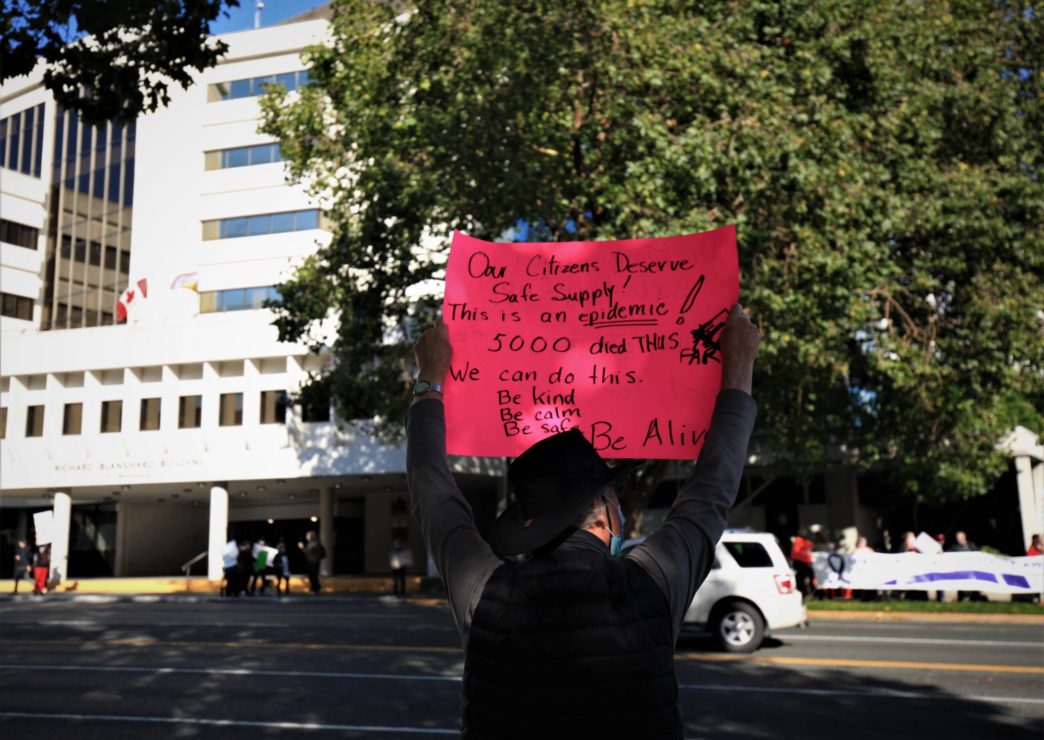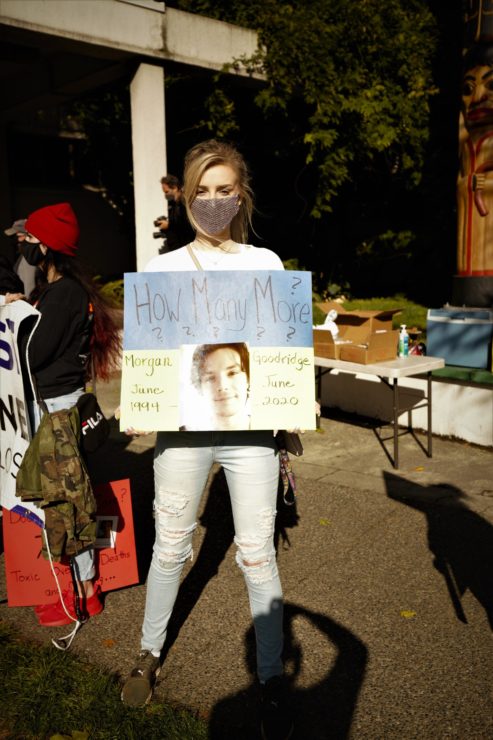B.C. has already seen more overdose deaths this year than all of 2019
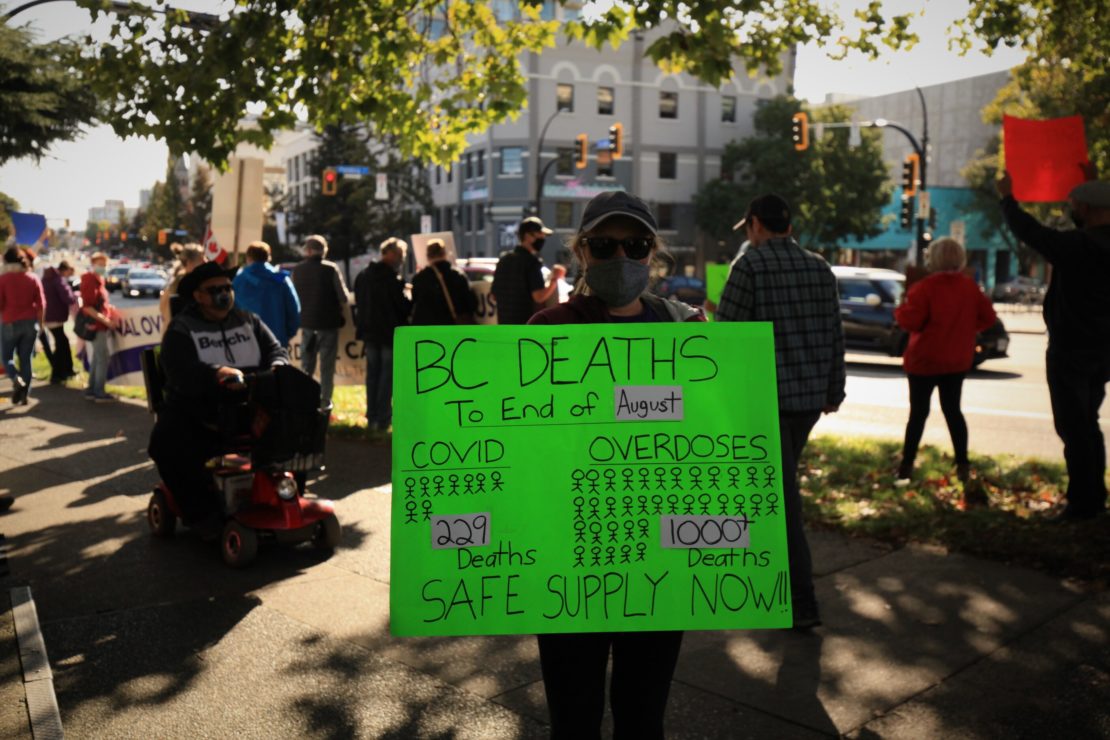
This article discusses drug overdose and addiction. Please be advised that this subject matter may be difficult and traumatic for some readers.
While COVID-19 takes the spotlight across Canada, B.C.’s other public health crisis continues to take lives. At a rally outside the Ministry of Health on Sept. 25, Moms Stop the Harm (MSTH) pressed for decriminalization amid cars honking their support.
“We can’t incarcerate ourselves out of this crisis,” say Jennifer Howard, an advocate with MSTH who lost her son Robby in 2016 to a fentanyl overdose.
A long banner read “International Overdose Awareness Day August 31 – Overdose Can Affect Anyone,” and advocates rang bells and noisemakers in solidarity with MSTH. Some signs featured decriminalization slogans, while others had photos of lost loved ones. One simply said, “They were so loved.”
MSTH rallied at the same spot on July 31, and hosted a virtual candlelight vigil on Aug. 31. They plan to host another rally before the B.C. election on Oct. 24.
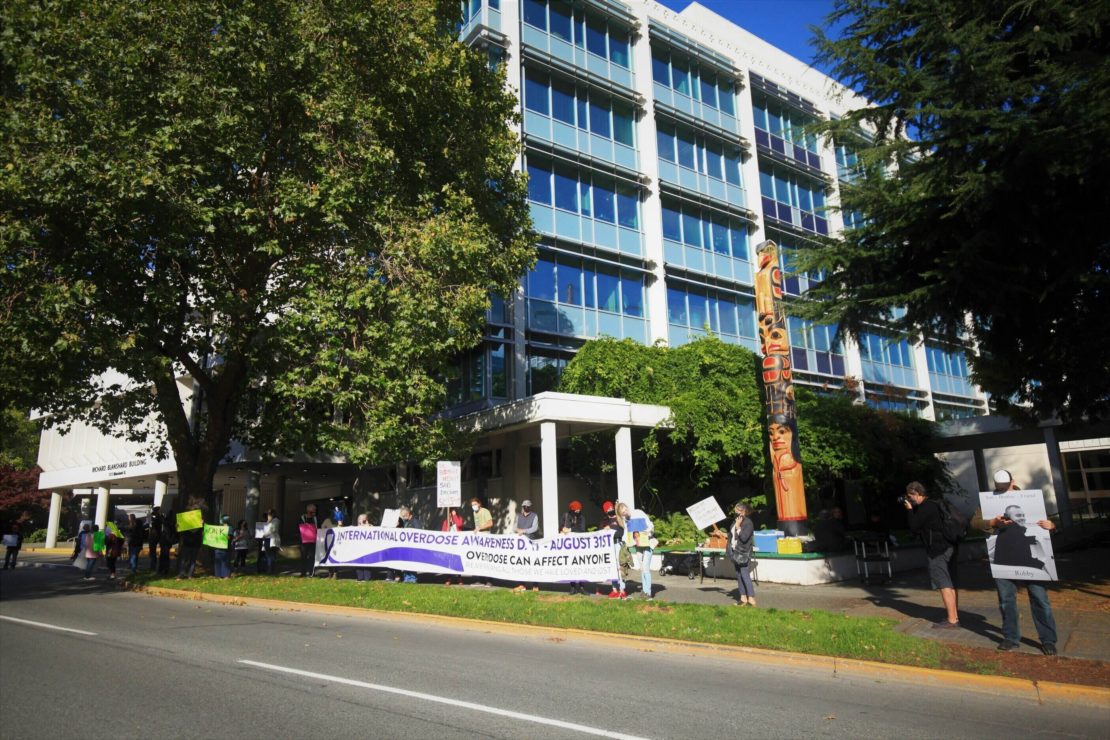
MSTH is a network of families impacted by substance use-related harms and deaths. They provide grief support groups and advocate against drug criminalization through their chapters across Canada.
At the rally, representatives from MSTH emphasized the need for an evidence-based health care approach to B.C.’s overdose crisis — rather than criminalizing drug-users.
“Advocates, family members, friends, loved ones, we’re all here today speaking for those that continue to struggle,” Howard said. “[We want] to see that funds are redirected from what is historically a stigmatized and justice-based approach to addiction to understanding that this is a health issue.”
“My question to the premier if I were to meet him would be, ‘what number of deaths will it take for you to have the political courage to do what’s needed?’” – Howard
A makeshift stage at the rally hosted a few speakers, including Jerry Majalahti from SOLID, a local organization that promotes practical harm reduction strategies among drug users.
“It’s not just poor people,” said Majalahti in an interview with the Martlet. “Sure, addiction is addiction, but death … it doesn’t discriminate.”
SOLID states on their website that “poverty, racism, social isolation, trauma, mental health problems and other inequalities are at the root of illicit drug use.” Their organization and board are composed of people who use or have used drugs.
As the province grapples with COVID-19, Dr. Bonnie Henry, B.C.’s provincial health officer, has emphasized the connection between these two crises. Henry says that the closure of international borders has increased toxicity of illegal drugs, and physical distancing measures have resulted in more people using drugs alone. Chief Coroner Lisa Lapointe has said that the pandemic restricted access to critical harm-reduction services, like supervised injection sites.
B.C. recorded 147 overdose deaths in August, a 16 per cent decrease from July, but a 71 per cent increase compared to August 2019. More than 1 000 people have died this year due to the overdose crisis, which already surpasses 2019’s total overdose deaths. B.C. Emergency Health Services also responded to a record-high number of non-fatal overdose calls this summer — over 7 500 in three months.
In April 2019, the Office of the Provincial Health Officer released a report on the overdose crisis called “Stopping the Harm,” which recommended that the provincial government immediately move to decriminalize possession of controlled substances for personal use. The province has not implemented these recommendations.
The report cites Portugal’s decriminalization example. After changing possession from a criminal to an administrative offense, drug-related deaths significantly decreased. Portugal kept strict penalties against traffickers and manufacturers.
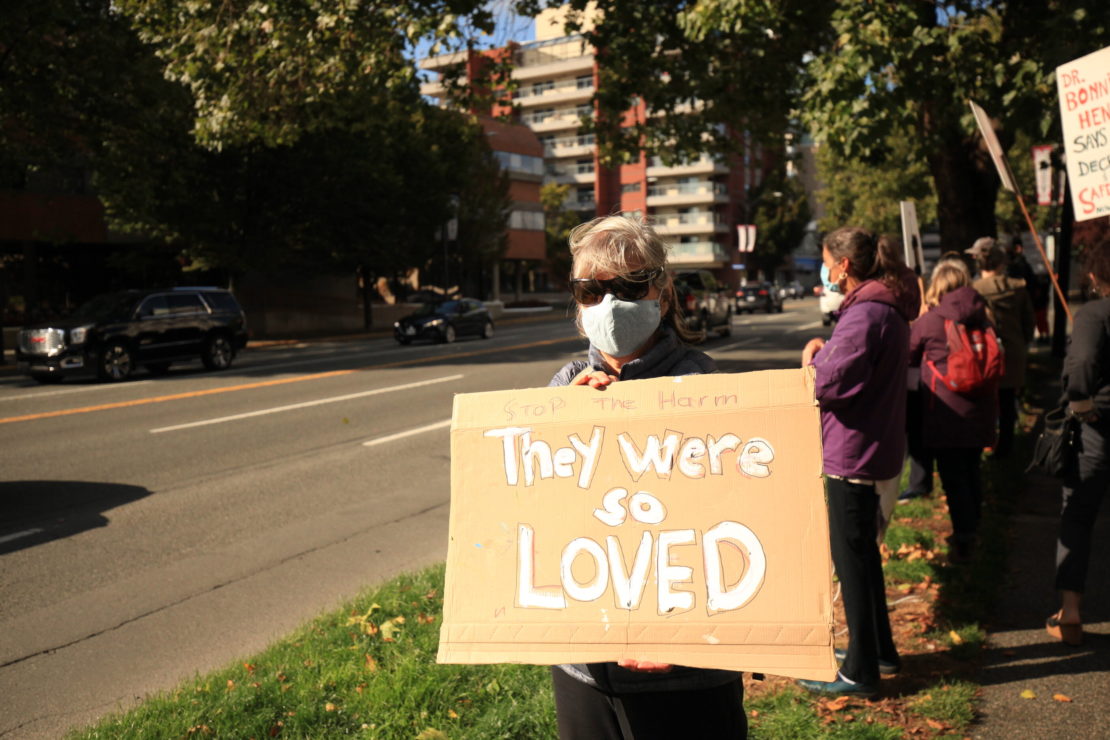
Howard says that at this time, MSTH is not endorsing any specific candidates or parties in the upcoming B.C. election, but will be closely watching campaign promises.
“For those of us who have lost loved ones, we’re left bewildered why our province is not looking at the evidence and responding to this crisis,” she says.
“My question to the premier if I were to meet him would be, ‘what number of deaths will it take for you to have the political courage to do what’s needed?’”



